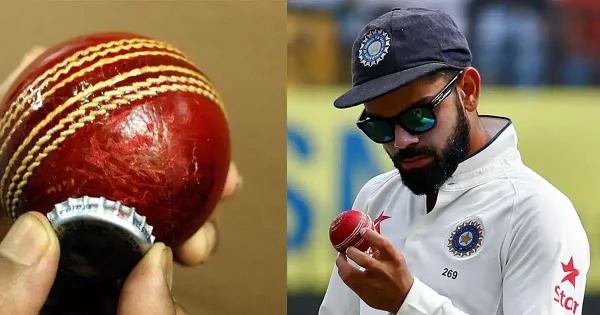After India’s comprehensive win over Australia by 34 runs in the T20 World Cup 2024 Super 8 Group 1 clash, the former Pakistan captain, Inzamam-ul-Haq, accused Arshdeep Singh and his team of ball tampering. The 54-year-old spoke about how the left-arm fast bowler reversed the ball in the 15th over, which is quite an early timeframe to do so, while pointing out that if the Pakistan bowler had managed the same, then there would have been a lot of commotion going on around.
Whether the accusations of Inzamam-ul-Haq are true or not, it’s important to understand what ball tampering means, and how it correlates with the reverse swing. Ball tampering is known as the work put on the ball by the fielding team, by illegal means, to alter its condition, to aid it to swing.
As per the MCC Laws of Cricket section 41, subsection 3, “It is an offence for any player to take any action which changes the condition of the ball.” “A fielder may, however polish the ball on his/her clothing provided that no artificial substance is used, that the only natural substance used is sweat, and that such polishing wastes no time, remove mud from the ball under the supervision of an umpire, and dry a wet ball on a piece of cloth that has been approved by the umpires.”
It has also been stated that “if the umpires consider that the condition of the ball has been unfairly changed by a member or members of either side, they shall ask the captain of the opposing side if he/she would like the ball to be replaced. If necessary, in the case of the batting side, the batters at the wicket may deputise for their captain.”
Previous incidents of ball-tampering
There have been numerous ball tampering incidents in cricket over the years, and one of the earliest ones involved Waqar Younis of Pakistan, who got himself suspended in July 2000, and he also got fined 50% of his match fees. In the summer of 2006, the Pakistan cricket team, led-by Inzamam-ul-Haq refused to take the field after getting penalised five runs against England in a Test match at The Oval in London, for which he was handed a ban of four ODI matches.
One of the latest ball-tampering incidents happened at the Newlands in Cape Town during a Test match between South Africa and Australia in March 2018. Cameron Bancroft was caught in the act, while the captain Steve Smith, and the vice-captain David Warner admitted to being the perpetrators of the Sandpaper Gate, which led to the ICC and Cricket Australia punishing them separately.
Notably, if the ball is tampered with, then the replacement ball might come into play on the discretion of the captain, but “the bowler’s end umpire shall award 5 Penalty runs to the opposing side,” as per the current MCC Laws of Cricket.
